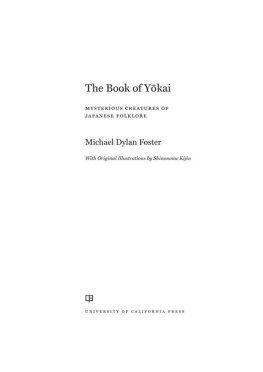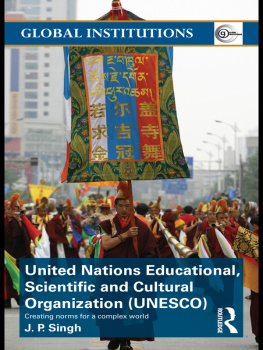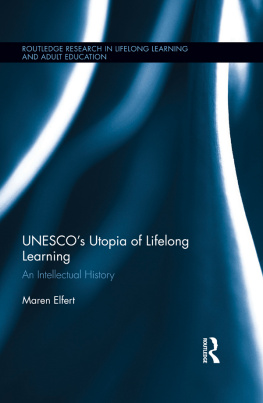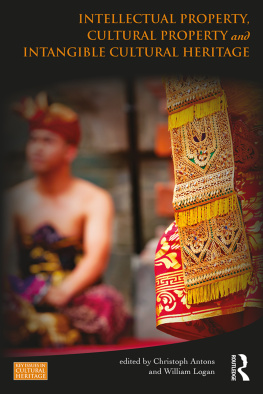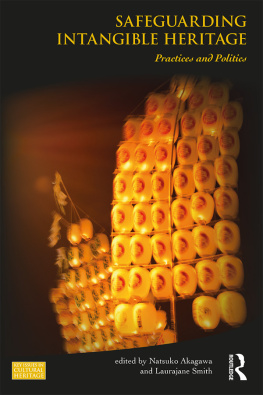UNESCO on the Ground
ENCOUNTERS: Explorations in Folklore and Ethnomusicology
A Journal of Folklore Research Book
UNESCO on the Ground
Local Perspectives on
Intangible Cultural Heritage
Edited by Michael Dylan Foster and Lisa Gilman

This book is a publication of
Indiana University Press
Office of Scholarly Publishing
Herman B Wells Library 350
1320 East 10th Street
Bloomington, Indiana 47405 USA
iupress.indiana.edu
2015 by Indiana University Press
All rights reserved
No part of this book may be reproduced or utilized in any form or by any means, electronic or mechanical, including photocopying and recording, or by any information storage and retrieval system, without permission in writing from the publisher. The Association of American University Presses Resolution on Permissions constitutes the only exception to this prohibition.
The paper used in this publication meets the minimum requirements of the American National Standard for Information SciencesPermanence of Paper for Printed Library Materials, ANSI Z39.48-1992.
Manufactured in the United States of America
Library of Congress Control Number: 2015948433
1 2 3 4 5 21 20 19 18 17 16
On the cover: Inventory of Intangible Cultural Heritage of Northern Malawi by Malawi National Commission of UNESCO and Malawi Department of Culture (Museums of Malawi). Iponga, Karonga District. February 9, 2014. Courtesy of Lisa Gilman.
Contents
/ Michael Dylan Foster
/ Leah Lowthorp
/ Kyoim Yun
/ Lisa Gilman
/ Michael Dylan Foster
/ Carol Silverman
/ Ziying You
/ Anthony Seeger
/ Valdimar Tr. Hafstein
/ Dorothy Noyes
UNESCO on the Ground
Michael Dylan Foster
UNESCO on the Ground

The practices, representations, expressions, knowledge, skillsas well as the instruments, objects, artefacts and cultural spaces associated therewiththat communities, groups and, in some cases, individuals recognize as part of their cultural heritage.
UNESCO, 2003 Convention for the Safeguarding of the Intangible Cultural Heritage
THESE WORDS ARE invoked by the United Nations Educational, Scientific, and Cultural Organization, commonly known as UNESCO, to define the term intangible cultural heritage or, in the current academic-bureaucratic vernacular, ICH. UNESCOs language here is open-ended, if not vague, but clearly includes the sort of expressive culture long studied by folklorists. Significantly, the definition emphasizes recognition of ICH on the local level, by the communities, groups, and individuals involved with the practices, representations, expressions, knowledge, and skills under consideration. I note here the importance of the local in this definition, and indeed in much of UNESCOs ICH discourse, because of the potential disconnect between this massive international organization headquartered in Paris and the disparate small communities scattered throughout the globe targeted by its efforts and affected by its decisions. It is perhaps inevitable that UNESCOs metacultural policies often become a testing ground for negotiations between the global and the local (however defined) and all points in between, where responses can be highly nuanced and often contentious.
Decisions made in distant cities influence national, regional, and local discourses on everything from economic development and tourism to racial conflict and depopulation. They illuminate, and also potentially exacerbate, all sorts of political, ethnic, and ideological divisions in places where ICH is not just a matter of theory but part of everyday life. The essays in this volume examine several such places through case studies in India, South Korea, Malawi, Japan, Macedonia, and China. Each explores how people involved with and affected on the ground by ICH initiatives experience, perceive, and respond to UNESCO and related entities.
In recent years, UNESCO and ICH have become key terms for the analysis of expressive culture, with folklorists involved in the theorization, creation, and implementation of global cultural policy and also offering critical analyses of such policies and of the role of UNESCO as an arbiter of culture. In 2012, a collection of essays entitled Heritage Regimes and the State (Bendix, Eggert, and Peselmann 2012a) provided an invaluable extended comparative examination of the ways in which UNESCOs current heritage policy has been implemented within individual nations. The chapters in that study bring to the fore the diversity of traditions that come under the purview of UNESCOs ICH umbrella and also illustrate the diversity of bureaucratic structures through which elements are nominated for recognition, policies are implemented, and heritage is maintained and (re)created.
We hope the case studies presented here will add to this groundbreaking work through their focus on the particularly intimate perspectives of people living in communities touched by ICH policies. Without overlooking the interests of national and regional stakeholders, our essays are informed primarily by individuals grappling on a grassroots level with the practical ramifications of UNESCO decisions in places where heritage is not an abstract concept but a mode of quotidian practice. In the words of Kristin Kuutma (2012, 33), Research on communities will penetrate deeper if investigated as particularities. And indeed, it is exactly these particularities that the essays here investigate, especially the manifold ways in which local residents participate in, respond to, and shape UNESCO (and other) cultural policies within their own communities. Our case studies explore how international designations and decisions affect (or do not affect) residents everyday lives and relationships, economic structures, senses of identity, and engagement with their own cultural practices.
In short, the objective of this collection is first and foremost to tap into local discourses and to present the voices, experiences, and ideas of people living in places where ICH is a topic of concern. It is in But accepting this fuzziness, our focus is on the site and the people who reside there.
I should add also that when we say local, of course, we really mean locals, and that within each one of these locals there exist different social divisions, power differentials, and other dimensions of diversity, further complicating the constitution of what is local. Through case studies in different parts of the world, we highlight such critical differences and similarities between distinct places and communities and provide material for comparative analysis. By exploring each of these sites at a micro level, looking outward from the inside, we show how a normative instrument (Aikawa 2004) such as UNESCOs ICH policy takes on specific associations and inflections. By providing individual examplesand the particular issues that inform different local discoursesfor comparison and contrast, we can explore the practical implications of UNESCOs work. We see our own comparative project here as part of a long tradition of folklorists paying careful attention to the complexities of local situations.
Metacultural and Esocultural
Barbara Kirshenblatt-Gimblett (2004, 56) has insightfully described heritage as metacultural and lists of the type created by UNESCO as metacultural artefects. Kuutma (2012, 24) notes that the metacultural is inevitably turned into or embraced by the cultural. With this in mind, the essays here explore the ways metaculture intervenes in culture. Or taking this one step further, perhaps what we are really trying to unpack is something even tighter, more localized, and more limitedthe microcultural or, to coin a term, the
Next page

